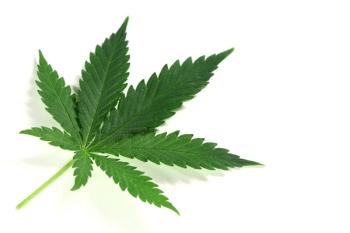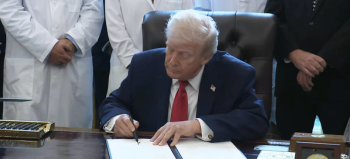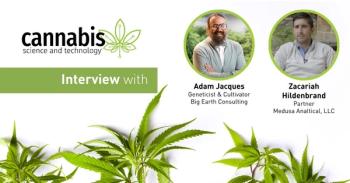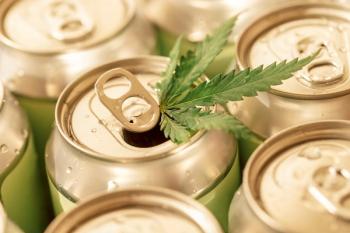
Cannabis Science a Big Hit at Pittcon 2018
The annual Pittcon Conference and Expo was held February 26–March 1, 2018, in Orlando, Florida, and featured a few tracks and special events dedicated to cannabis science.
Joshua M. Crossney, of JCanna, Inc., organized the second annual “Analytical Cannabis Symposium,” which took place on Monday, February 26, 2018. The symposium was very well attended, with standing-room only during certain talks and several interesting audience questions throughout. The first talk was given by Crossney and was titled “Building Bridges: Cannabis Science Education and Medical Reform.” Crossney discussed his efforts, as well as the efforts of other leaders in the field, to educate, empower, and inform the public about cannabis. Crossney cited specific articles, symposia, conferee networking sessions, and his own Cannabis Science Conference and “Canna Boot Camp” hands-on workshop as great sources to learn more about cannabis. The second talk, “Why Is Sample Preparation So Important?” was given by Sandy Mangan of SPEX SamplePrep. Mangan discussed the need for sample preparation in cannabis from a safety perspective, offering advice on the best tools to use for sample preparation, the different methods to prepare samples for potency and pesticide testing, and how to make informed decisions to get the best results. Next, Bob Clifford of Shimadzu Scientific Instruments gave a talk titled “A Survey of Analytical Instruments Used in the Cannabis Testing Industry.” Clifford discussed the various analytical instruments that are required for testing potency profiling, terpene profiling, contaminate testing for pesticides, residual solvents, heavy metals, mycotoxins and aflatoxins, moisture content, and medical research.
After a brief recess, the “Analytical Cannabis Symposium” resumed with a talk from Anthony Macherone of Agilent Technologies and Johns Hopkins. Macherone’s talk was titled “Cannabinoid Quantitation in Hemp Oils Using LC–UV-MS Based Solutions.” He discussed a study in which ultrahigh-pressure liquid chromatography (UHPLC) and mass spectrometry were used to determine potency and quantitatively profile the 11 most commonly targeted cannabinoids in commercially available products. Finally, Julie Kowalski of Trace Analytics gave a talk titled “Reassessing Potency Analysis: Investigation of Interferences and Method Specificity Using Liquid Chromatography–Ultraviolet Detection and Tandem Mass Spectrometry.” Kowalski’s talk focused on her research using a simple isocratic chromatographic method that allowed resolution of isobaric cannabinoids. She also used the selectivity of liquid chromatography–tandem mass spectrometry (LC–MS/MS) to quantify cannabinoids in a variety of cannabis matrices.
On Monday afternoon, Crossney was the facilitator for the second annual conferee networking session on cannabis called “Cannabis Testing Forum: New Opportunities for Enhancing Quality and Expanding Research.” Again, this session was very well attended with standing-room only for the duration of the 90 minutes. Crossney led the discussion with key topics for consideration such as areas that need improvement in cannabis science and also left it open for participants to ask their own questions. Several participants commented on the need for unified standards and methods for cannabis testing laboratories, and the concern that there is no agency to enforce implementation of such methods once they do exist.
Another participant commented that laboratories should do more than what is required, explaining that they should be doing the most stringent testing possible. Others commented that quality control is very important and explained that for every provider doing it right, there are five more behind them doing it cheaper or not as effectively. There were additional concerns raised about product consistency from state to state, naming conventions, quality, and accreditation for laboratories.
Crossney also brought up the stigma surrounding cannabis use, explaining that the most dangerous thing about cannabis is its Schedule I status. He also mentioned early medical cannabis advocate Dennis Peron and pointed out that the HIV/AIDS epidemic was what started the movement to legalize medical cannabis. Crossney said that the industry should not stray from the focus of cannabis as medicine. “People shouldn’t be stigmatized for taking medicine,” he said.
Participants in the conferee networking session came from backgrounds ranging from testing laboratories, to analytical instrument companies, government bodies, college students and professors, and a representative from the flavor and fragrance industry, among others. One clear takeaway from the session was that the issues brought up by all participants are important and being considered seriously by a wide range of people in the industry. The sense of collaboration for the greater good of science was apparent.
Other cannabis-related events were held at Pittcon:
- On Tuesday, February 27, Josh Crossney gave a presentation at Pittcon’s NEXUS Theater titled “Cannabis Quality Control Testing and Research Updates”
- On Thursday, Thursday, March 1, there was another conferee networking session titled “Quality in the Cannabis Industry,” facilitated by Michelle Bradac of A2LA
- On Thursday, Thursday, March 1, there was an oral session titled “SFC Applications for the Cannabis Industry,” given by J. Preston of Phenomenex
Newsletter
Unlock the latest breakthroughs in cannabis science—subscribe now to get expert insights, research, and industry updates delivered to your inbox.



